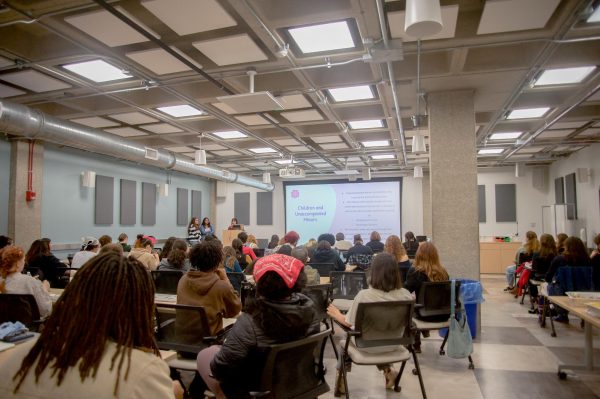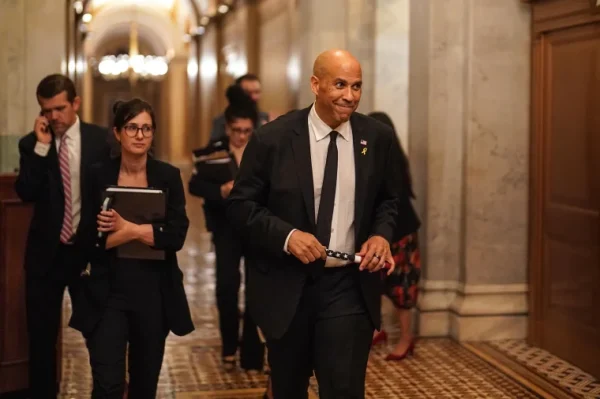Oberlin: We Are Still Your Concern
I am perfectly aware that this is an impossible situation. Oberlin College and the City of Oberlin do not have the infrastructure, facilities, staff, or resources to deal with an outbreak of the novel coronavirus, COVID-19, and it is true that it is best to act quickly in unpredictable situations such as the spread of disease.
However, it’s impossible not to take into account how devastating these changes are for many students at this school given their personal circumstances.
For some students, going home and completing remote education is an inconvenience. Their lives aren’t drastically changed. They will go home and do their coursework from bed in their pajamas. Maybe they’ll be relieved from some of the pressures of school and find better support systems than they have on campus. Good for them. I wish every Oberlin student had that waiting for them in the wake of this crisis.
But for a lot of students, especially those who are low-income, people of color, LGBTQ+, disabled, mentally ill, or have unstable home environments, this is a nightmare. So where are the resources for these people? Who’s talking to them about their options in this panicked time?
To this point, the administration doesn’t have good answers for students who don’t have access to WiFi, computers, software, or proper learning environments at home. The outlook for students who face these challenges or have particular learning disabilities is bleak. However, I believe that the College is working on this across the board, because it does affect a great amount of people. Without learning, Oberlin isn’t a college, and I am confident the school will find a path forward.
What is concerning is that, for some students, leaving campus means that they will become financially responsible in ways that they aren’t prepared for. Some students have to find a job immediately in order to pay for food, travel, and other living expenses now that they have lost the security of being housed and fed by their college. What’s more, the College will not be refunding students who are sent home for the semester for room and board. And if, as according to rumors, class meeting times will be kept consistent, scheduling difficulties could hinder the ability of students to work even further. There is the unfortunate reality that some students may have to put their education on hold, maybe indefinitely, to support themselves financially during this time.
So where’s the support — especially since we aren’t being reimbursed for room and board? For some students, that means that they are suddenly financially responsible for taking care of themselves twice over! This is unacceptable. I truly believe that the College has the responsibility to do whatever it takes to ensure that its students are adequately taken care of during this time — even if it seriously damages the financial vitality of this institution. The future is uncertain, but right now, Oberlin, your students need you.
Others have to deal with unstable home environments, and going back home unexpectedly means that students are exposed to responsibilities and stressors that they didn’t have to deal with at college. This can look like abuse, caregiving responsibilities, food insecurity, and unsuitable living conditions. Oberlin meets 100 percent of demonstrated financial need, which means that for a lot of students, going to college allowed them to live at a standard of living that they had never experienced before coming to Oberlin, and they are now suddenly forced to deal with the realities of their home situations once again.
The decisions that the College will make regarding whether or not to send students home is also irrevocably intertwined with mental health. For any student with mental health issues, the lack of stability and clear structure in this time can put them at high risk for worsening symptoms. For some students, coming to Oberlin was the first time they could get their mental health needs addressed due to factors such as accessibility, financial constraints, or toxic mental health attitudes at home. There are many students who have home environments that will directly act as severe triggers for their existing mental health issues. These can look like LGBTQ+ -phobias, abuse, exposure to toxic lifestyles, or undue responsibilities, among other things. These students are suddenly out in the cold, and for some, it could be an issue of life or death.
Oberlin cannot fix our home lives, but sending us back there without much warning or support is negligent in some cases. I, and several other Oberlin students, have petitioned to stay on campus due to hardships like these, but we were denied with no opportunity for appeal, or resources to help our dire specific situations in these terrifying times. This is an absolute failure on the part of the College; these problems have to be addressed and acknowledged.
I need to know that someone is working on this. And it’s disappointing, but not surprising, to know that people who are parts of historically marginalized communities are suffering the most right now. Such is the way in any kind of crisis, and this is no exception. If I have learned anything in my first three semesters at Oberlin, it’s that there are populations in our world that are more vulnerable than others, and we as a society should protect them and support them. There’s no shame in asking for help. So I’m asking for help, on behalf of myself and other students who find themselves especially vulnerable in this time, from the school that we all put our personal and financial faith in when we enrolled to live and learn at Oberlin.



